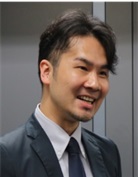Mel Slater, Professor and Distinguished Investigator
University of Barcelona, University College London
 Mel Slater is a Distinguished Investigator at the University of Barcelona in the Faculty of Psychology. He has been Professor of Virtual Environments at University College London since 1997 in the Department of Computer Science. He has been involved in research in virtual reality since the early 1990s, and has been first supervisor of 38 PhDs in graphics and virtual reality since 1989. He held a European Research Council Advanced Grant TRAVERSE 2009-2015. He is Field Editor of Frontiers in Robotics and AI, and Chief Editor of the Virtual Environments section. He has contributed to the scientific study of virtual reality and to technical development of this field including its applications in clinical psychology and the cognitive neuroscience of how the brain represents the body. His publications can be seen on http://publicationslist.org/melslater. He is a Founder of the company Virtual Bodyworks S.L. and is currently Immersive Fellow at Digital Catapult London. He started a new ERC Advanced Grant in January 2018.
Mel Slater is a Distinguished Investigator at the University of Barcelona in the Faculty of Psychology. He has been Professor of Virtual Environments at University College London since 1997 in the Department of Computer Science. He has been involved in research in virtual reality since the early 1990s, and has been first supervisor of 38 PhDs in graphics and virtual reality since 1989. He held a European Research Council Advanced Grant TRAVERSE 2009-2015. He is Field Editor of Frontiers in Robotics and AI, and Chief Editor of the Virtual Environments section. He has contributed to the scientific study of virtual reality and to technical development of this field including its applications in clinical psychology and the cognitive neuroscience of how the brain represents the body. His publications can be seen on http://publicationslist.org/melslater. He is a Founder of the company Virtual Bodyworks S.L. and is currently Immersive Fellow at Digital Catapult London. He started a new ERC Advanced Grant in January 2018.
www.melslater.me – Twitter – Linkedin
Freddy Abnousi MD, MBA, MSc
Head of Healthcare at Facebook Inc.

Dr. Abnousi is the Head of Healthcare – Research Partnerships at Facebook and an Interventional Cardiologist specializing in coronary and structural interventions. He also serves as Innovation Advisor to the American College of Cardiology and Assistant Professor Adjunct at Yale University School of Medicine. He has previously led innovative healthcare efforts at companies such as McKinsey and Google, and has served as Founder and CMO of CorDynamix Inc., an interventional heart failure company. He completed Fellowships in Cardiovascular Medicine and Interventional Cardiology, as well as Residency in Internal Medicine at Stanford University Medical Center. He was previously a resident surgeon at the University of California, San Francisco. He completed his MD at Stanford University School of Medicine, MBA from Oxford University, and MSc in Health Policy, Planning, & Financing from the London School of Economics.
Shumin Zhai
Principal Scientist

Shumin Zhai is a Principal Scientist at Google where he leads and directs research, design, and development of input methods and haptics systems. His research career has contributed to theoretical models and understandings of human-computer interaction as well as practical user interface designs and product innovations. He originated and led the SHARK/ShapeWriter project at IBM Research and a start-up company that pioneered the swiping word-gesture keyboard paradigm. His publications have won the ACM UIST Lasting Impact Award and a IEEE Computer Society Best Paper Award, among others. He served as the 4th Editor-in-Chief of ACM Transactions on Computer-Human Interaction, and frequently contributes to other editorial boards and program committees. He received his Ph.D. degree at the University of Toronto in 1995. In 2006, he was selected as one of ACM’s inaugural class of Distinguished Scientists. In 2010 he was named Member of the CHI Academy and Fellow of the ACM.
Hiroyasu Iwata
Professor at Waseda University
 Professor Hiroyasu Iwata is professor of the Faculty of Science and Engineering at Waseda University where he is leading the Iwata Lab. He has recently received the Division Contribution Award at the Robotics and Mechatronics Conference (ROBOMECH) for the excellence of his research on human assistive robot technology, such as his latest research on Perception Empathy Wearable Devices to Assist Walking Rehabilitation for Patients with Foot Paralysis. The Iwata Lab is conducting research and development in the areas of Rehabilitation Assistive RT, Medical Care Assistive RT, Sports Learning Assistive RT, and “Third Arm”: Voluntarily Operative Wearable Robot Arm by focusing on the senses, the mechanism of movement, and the dynamic characteristics of humans with human assistive robot technology (RT). Our goal is to realize commercialization of these products in conjunction with hospitals and private businesses. Additionally, we are conducting cutting-edge research in the areas of Support System for Teleoperators of Disaster Response Robots and Application of Electronic Nanosheet jointly with other research groups within the university.
Professor Hiroyasu Iwata is professor of the Faculty of Science and Engineering at Waseda University where he is leading the Iwata Lab. He has recently received the Division Contribution Award at the Robotics and Mechatronics Conference (ROBOMECH) for the excellence of his research on human assistive robot technology, such as his latest research on Perception Empathy Wearable Devices to Assist Walking Rehabilitation for Patients with Foot Paralysis. The Iwata Lab is conducting research and development in the areas of Rehabilitation Assistive RT, Medical Care Assistive RT, Sports Learning Assistive RT, and “Third Arm”: Voluntarily Operative Wearable Robot Arm by focusing on the senses, the mechanism of movement, and the dynamic characteristics of humans with human assistive robot technology (RT). Our goal is to realize commercialization of these products in conjunction with hospitals and private businesses. Additionally, we are conducting cutting-edge research in the areas of Support System for Teleoperators of Disaster Response Robots and Application of Electronic Nanosheet jointly with other research groups within the university.
